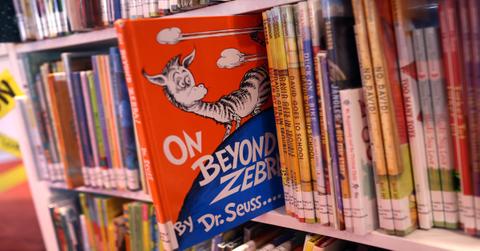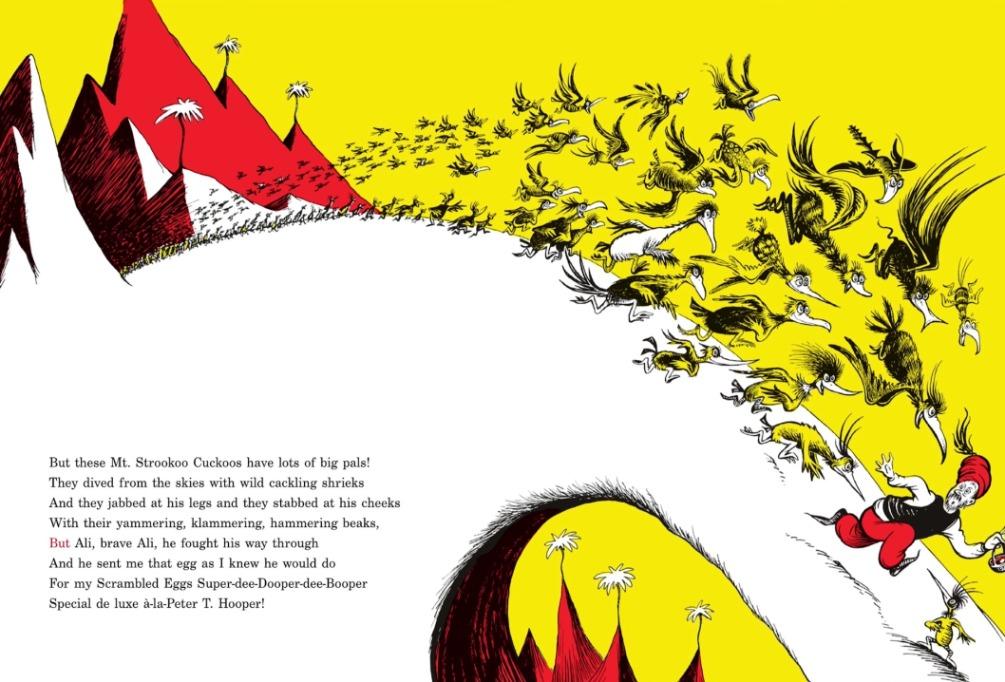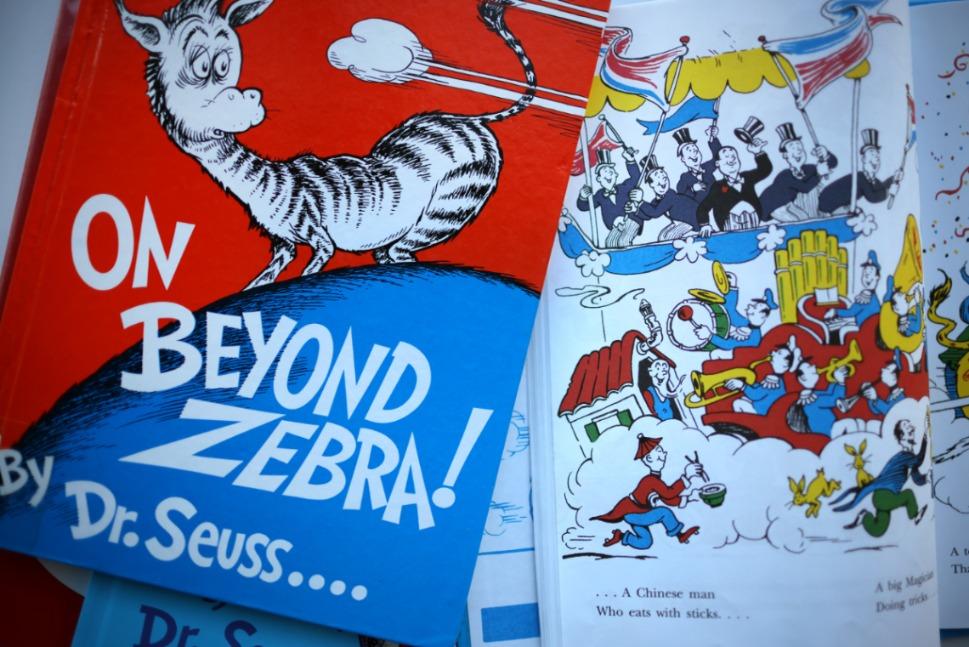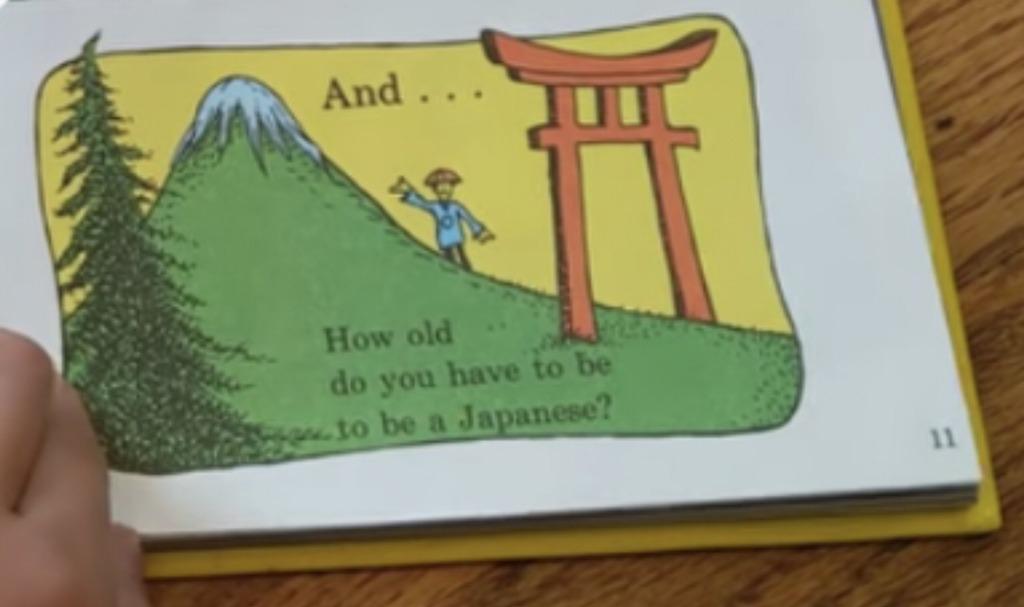6 Dr. Seuss Books Taken off Shelves Due to Racially Insensitive Content
Published March 9 2021, 2:05 p.m. ET

National Dr. Seuss Day may have once been a day for kids and adults alike to bask in the wonder that is the plethora of Dr. Seuss books published over the years. In 2021, however, those same readers started to notice some starkly problematic imagery in a handful of Dr. Seuss books that displayed blatant racial insensitivity.
So, what Dr. Seuss books are getting removed, you ask?
Because of that, six Dr. Seuss books, by author Theodor Seuss Geisel, are being pulled from bookstore and library shelves across the United States. And now, those same books are no longer going to be published either. While not all Dr. Seuss books are being canceled, there are some that have proved to be problematic when examined through a careful lens.
'Scrambled Eggs Super!'

In 1953, Dr. Seuss published Scrambled Eggs Super! about a boy who travels around the world searching for eggs from exotic birds that taste the best. One of the places he visits in the book is in the Arctic, where he sees a group of people wearing what appear to be Inuit clothing. He also comes across a man by the name of Ali in a turban. These are both examples of cultural representation that play on stereotypes.
'If I Ran the Zoo'
The 1950 Dr. Seuss book If I Ran the Zoo is about a young boy who visits the local zoo and finds that to him, the animals on display aren't good enough. In an attempt to make it more interesting, he imagines the sorts of wild animals he would have in his own zoo. One issue with this particular children's book is that it also shows illustrations of two African men wearing grass skirts while barefooted and it draws into question proper perceptions of other cultures.
'McElligot's Pool'
In this 1947 book, a young boy is fishing in a trash-filled pond when a farmer teases him about not being able to catch a fish. Enter an onslaught of imaginative images of the boy explaining all of the wild scenarios in which he will catch a fish. McElligot's Pool was removed for using the word "Eskimo" to describe a type of fish from the North Pole. It also shows the "Eskimo Fish" in parkas.
'On Beyond Zebra!'

In On Beyond Zebra!, published in 1955, kids learn about a ton of fictional and nonsensical letters in a made-up alphabet. The reason this one was pulled from library and bookstore shelves along with the others may be because of the image of what the book calls a "Nazzim of Bazzim," which is a man who appears to be of Middle Eastern descent riding on a camel-like animal.
'And to Think That I Saw It on Mulberry Street'
The first Dr. Seuss book, And to Think That I Saw It on Mulberry Street, was published in 1937 and depicts a boy imagining wild scenarios with the different people, places, and things he sees on his way home from school. Although it hasn't been confirmed by Dr. Seuss Enterprises what images were found offensive in this book, one may have been a person described as a "Chinese man" with lines for eyes, who is shown eating rice and wearing a pointed hat.
'The Cat's Quizzer'

Featuring the Cat in the Hat himself, The Cat's Quizzer, published in 1976, is designed to quiz a school-aged reader on a variety of things, while the Cat in the Hat answers the questions too. One of the nonsensical questions in the book is, "How old do you have to be to be a Japanese?" Paired with the question is the offensive image of a yellow-skinned man wearing an Asian conical hat.
While most of these books' images have sparked controversy over the years, it wasn't until March 2021 that Dr. Seuss Enterprises willingly removed these books from the official Dr. Seuss online store and anywhere else you might find new copies or versions in a library. In a statement on the website, the company said it is "committed to action" when it comes to inclusion.
"Dr. Seuss Enterprises celebrates reading and also our mission of supporting all children and families with messages of hope, inspiration, inclusion, and friendship," the statement said. "Ceasing sales of these books is only part of our commitment and our broader plan to ensure Dr. Seuss Enterprises's catalog represents and supports all communities and families."